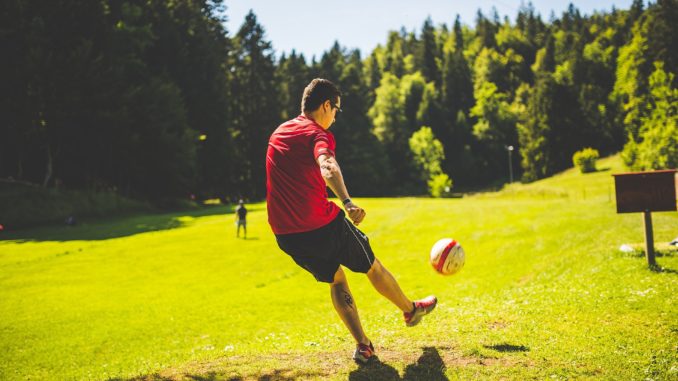
People engage in soccer for recreation-related reasons like competition, or self-satisfaction. Because soccer involves physical activity, footballers have to fit for optimal performance. Soccer fitness incorporates building up a skill and capacity. Soccer fitness is an open door for personal growth. Soccer fitness can likewise mean better mobility and greater energy. Soccer fitness is a character-building pursuit.
With health fitness, the footballers can maintain the much-needed energy and vitality necessary in the game. Especially when they are in professional soccer, their football career will depend largely on their fitness. Soccer fitness is a lifestyle.
Flexibility and stamina are significant when soccer and fitness are linked together. This is because if your body is not flexible, then you may be setting yourself up for a major injury. Without stamina, you will not have the endurance needed to perform at your best through the duration of the game. Footballers need to exercise to build and strengthen their leg muscles
Here are four things you should know and do to assure soccer fitness is safe.
1. Drink Lot of Fluids
When you’re engaged in soccer, you are losing liquid. If you’re wasting too much fluid without replacing it, you could have severe health problems. So when you’re engaged in strenuous football exercise, you need always to drink sufficient water so as to replace what you’re losing through sweat and more preferably sports drinks.
2. Consume a lot of fruits and fresh vegetables
Strenuous exercise engaged with soccer quickly exhausts the collection of vital vitamins and minerals. Fresh fruit and fresh vegetables contain necessary supplements. At the point when you’re occupied with football, make it a propensity for eating vegetables, organic product, beans or nuts, and a natural citrus product like oranges to stay in fit. Games fitness includes a sound, balanced eating routine.
3. Protect the Bones
People involved in soccer are at a higher risk of broken bones injuries. When you keep your bones healthy, the better for you will be. Your diet should include calcium sources such as sardines and dairy products. You can also add calcium supplements to your diet. This goes a long way to strengthen your bones and be able to withstand bumps and the field crashes. It will also help you to get a head start to fend off dreaded osteoporosis.
4. Warm Up
Footballers may fall prey to injury or strain their muscles if their body isn’t loose and limber before starting playing. The right balance of warm-up and stretching is an integral part of any soccer-specific strength and fitness training program. Injury prevention is a crucial consideration and important reason for an Individualized warm-up, stretching, and flexibility program. Before a match, the soccer players must be warmed up and have stretched for a period of between 15 and 30 minutes, not only to reduce the risk of injury but to improve training results and match performance.
A properly warm-up routine prepares the player, physically and mentally, for peak performance. Warm-up also increases the body’s metabolism and core temperature. It has a positive, general cardiovascular impact, expanding both heart and lung work and permitting for a total conveyance of oxygen and vitality giving supplements to the musculature amid times of pinnacle request. Active warm-ups get the heart rate stable.
Observe these simple rules to keep fit throughout your football career.

